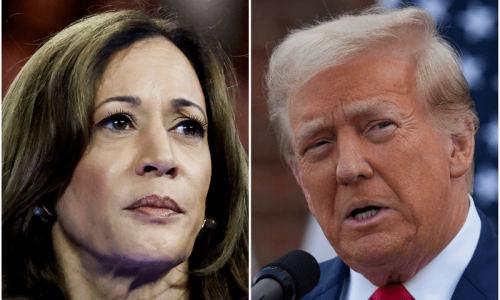LONDON: Severe disruptions caused by the Covid-19 pandemic to immunisation campaigns against measles and polio are putting millions of vulnerable children at risk from deadly and debilitating diseases, United Nations agencies said on Friday.
Issuing an urgent call for funding to avert epidemics of the contagious diseases, the UN children’s fund Unicef and the World Health Organisation (WHO) said $655 million was needed to address “dangerous immunity gaps” in poor and middle-income countries.
“We cannot allow the fight against one deadly disease to cause us to lose ground in the fight against other diseases,” Unicef’s executive director Henrietta Fore said in a statement.
Fore said the $655m needed included $400m for polio and $255m for measles.
Transmission of poliovirus is now expected to increase in Pakistan and Afghanistan
Measles has staged a global resurgence in recent years, with ongoing outbreaks in all parts of the world.
Vaccination coverage gaps have been further exacerbated in 2020 by Covid-19, and the WHO said data on measles death rates for 2019, due to be released next week, “will show the continued negative toll that sustained outbreaks are having”.
With polio, case numbers worldwide had been reduced to extremely low levels before the Covid-19 pandemic, but transmission of the crippling virus is now expected to increase in Pakistan and Afghanistan, and in areas of Africa where polio vaccination coverage rates have dipped.
“The Covid-19 pandemic (has) hurt momentum as... immunisation efforts were suspended,” the WHO’s director general Tedros Adhanom Ghebreyesus told a news briefing on Friday.
“This left children, especially in high-risk areas, more vulnerable to killer diseases like polio, measles and pneumonia. And now we’re starting to see outbreaks of these diseases.”
The WHO’s director of immunisation, vaccines and biologicals Catherine O’Brien told a separate briefing that disruption caused by the coronavirus pandemic to health services had led to 91 routine vaccination campaigns being stopped in 53 countries.
“They’re coming back, but they haven’t come back fully or as quickly as we were hoping they will,” she said, adding that this was creating “immunity gaps” for measles, polio and several other infectious diseases.
“If we don’t act quickly soon for both polio, measles, yellow fever, cholera, typhoid, we will see significant outbreaks in 2021 or 2022,” O’Brien said.
Published in Dawn, November 7th, 2020














































Dear visitor, the comments section is undergoing an overhaul and will return soon.